US POLITICS
Regardless of which way the pendulum swings, the upcoming American midterm elections will be a real nail-biter
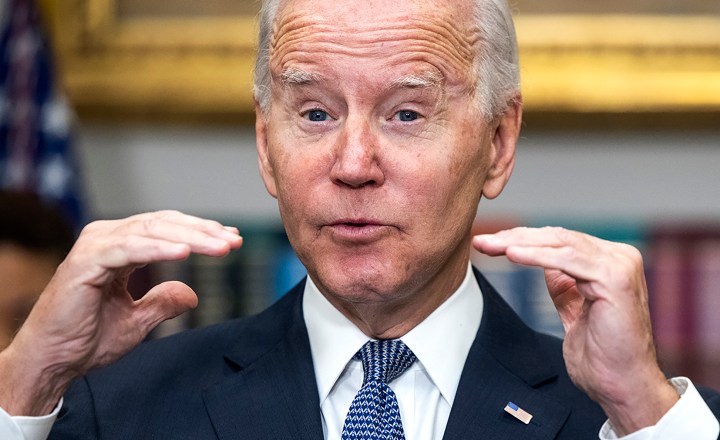
The US midterm elections are a little over a week away and it remains hard to predict how they will turn out. Will they echo the nationalist populism that seems to be doing well in other nations?
Depending on which moment one chooses, the upcoming US midterm elections on 8 November may be an enormous popular electoral comeuppance for Democrats — and President Joe Biden in particular.
Or, perhaps they will be an electoral squeaker in which the party, its candidates, and Biden (who is not actually on the ballot but whose standing with the nation is) hold on grimly and just barely manage to keep control of the Senate and barely lose their hold on the House of Representatives.
Or, even, by some miracle, perhaps Democrats will maintain control of the House of Representatives as well, but by the slimmest possible margin. In that possibility, where the Democrats manage to hold on to their control of both houses of Congress, it will largely be as a function of some truly egregious candidates from the Republicans and last-minute drops in the price of gasoline (petrol) at the pump, continuing good news on unemployment, upticks on economic growth estimates and a decline in inflation figures.
Regardless of the eventual outcome, it is going to be, as in the popular mythology about elections, a real nail-biter. It will be one in which election watchers, commentators, TV news presenters and the candidates themselves will be up late. Inevitable now, too, there will be bitter and increasingly farcical charges of electoral steals thrown around with wild abandon — generally with virtually no relationship to observable reality.
There will also be arguments about the counting of mail-in and advance balloting — fuelled by the increasing tendency of voters to cast their ballots in what is beginning to be called election month, rather than election day, because of that growing prevalence of balloting before the date of the election in many states. (This trend also helps fuel charges of fraud as there is evidence that early voters tend to make different selections from those who choose to wait until the actual election day.)
As the vote counts finally stumble to a conclusion, shortly after the results are confirmed there will be those inevitable (and tiresome) arguments about why the polling data misled so many people in one way or another. Yet another staple of the discourse around US elections will be heard and this will be the inevitable disputes about the manner in which television networks and others “called” this or that result and whether those “calls” somehow influenced people waiting to vote elsewhere in the country.
What’s it all about?
Given all this attention being given to a midterm — non-presidential — election, do the results really matter for Americans and the rest of the planet? Further, what is actually at stake in this exercise of citizen choices? Let’s take the second question first — what, exactly, is this election for?
In their basic structure, the midterm elections pick the entire membership of the 435-seat House of Representatives (individuals who have two-year terms and who are elected on constituencies roughly equivalent to the same number of people, district-by-district within each state), along with approximately a third of the Senate (senators are two to a state and are elected for six-year terms with a third up for election every two years).
Then there are numerous governorships up for election state-by-state, as well as a vast number of state legislators and local officials at country and city levels. Moreover, there may also, in many states, be referendums for citizens to vote in via their ballots. These referendums are often about contentious local or state tax or governmental funding issues, or even changes in state laws.
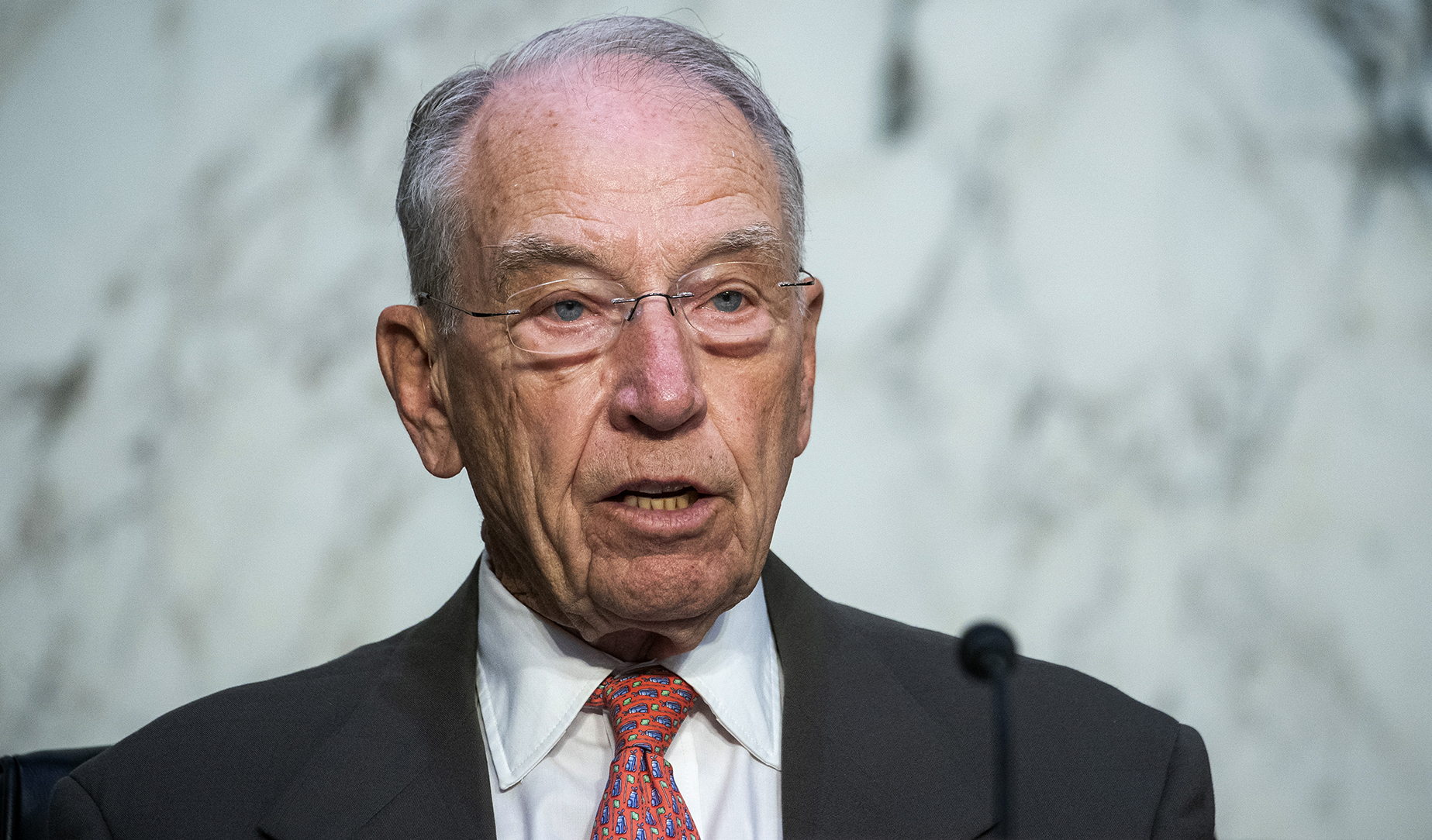
Senator Chuck Grassley, a Republican from Iowa and ranking member of the Senate Judiciary Committee. (Photo: Al Drago / Bloomberg via Getty Images)
Some of the candidates for all these offices are incumbents already in office who easily (or sometimes with great difficulty) fought off challengers in primary elections for them to run for election in November in order to continue to serve, such as Iowa Senator Chuck Grassley. He has been one of the state’s two senators for as long as most people can remember and at 89 years of age is hoping for one more term. Or they may be candidates who gained their respective nominations in those primary elections earlier in the year all across the country. These primaries may have preceded the actual election by nearly a year in some cases.
Quality and the lack thereof
This time around, many commentators have been remarking about the quality of many of the candidates — or the serious lack of it. In particular, this has been manifesting itself in discussions about a cohort of non-incumbent Republican candidates for the Senate. Their races are especially important because the Senate is now split 50-50 between the two parties. Despite this split, control has remained with the Democrats because, per the Constitution, in the event of a tie on any vote, whether on substantive measures or organisational ones such as who is the majority leader, the vice-president has the tie-breaking vote. This is, in fact, the vice-president’s single most important substantive role. Any other duties are largely what the president deems worth delegating to him or her.
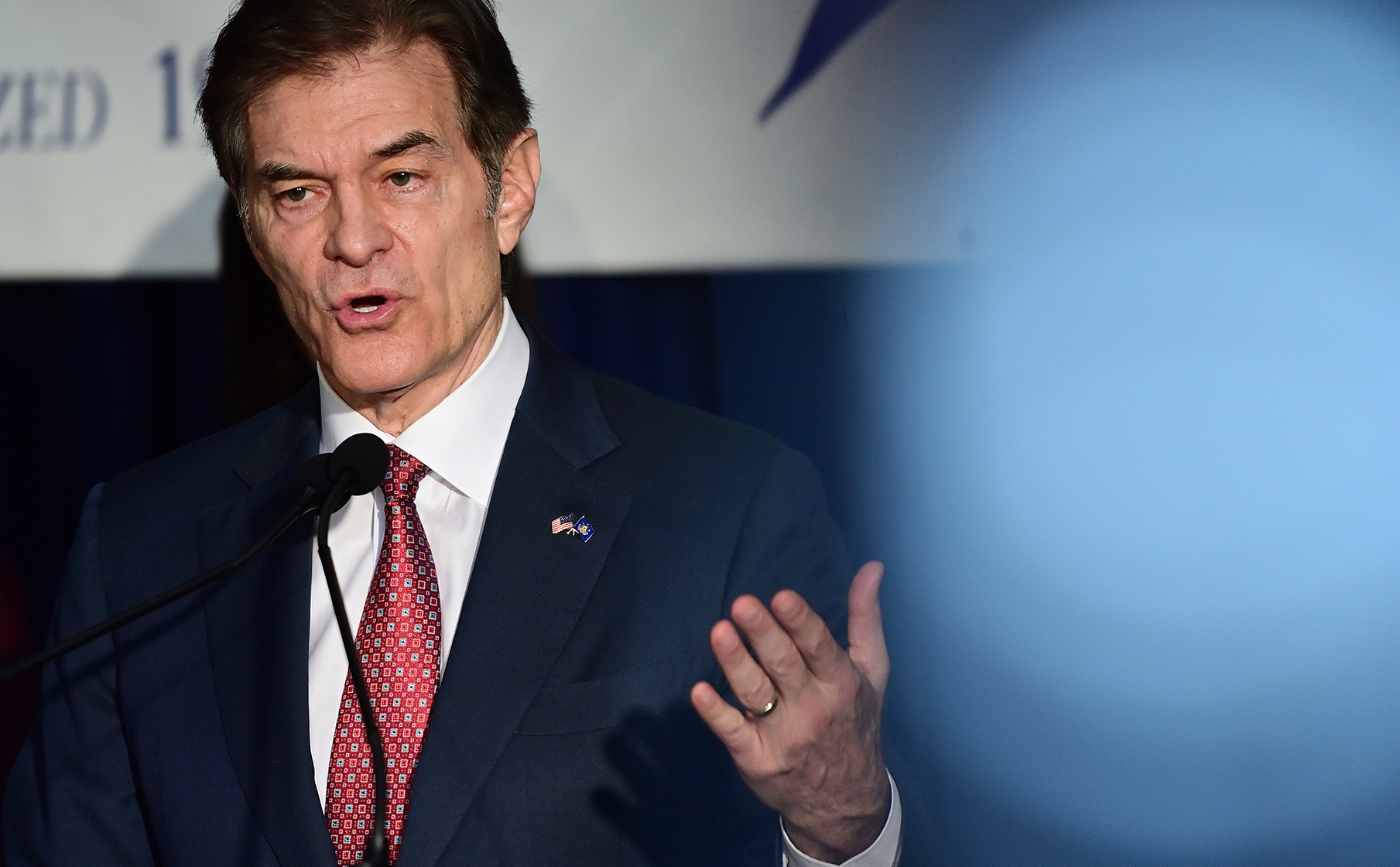
Republican US Senate candidate Dr Mehmet Oz. (Photo: Mark Makela / Getty Images)
This year, Republican candidates like Herschel Walker, Dan Bolduc, Dr Mehmet Oz and JD Vance, in particular, have been particularly problematic potential victors for their party (and the nation as well, should they prove victorious), even in the face of the reportedly growing likelihood of a substantial Republican electoral wave.
The sense of it is that this is due to economic factors, concerns about rising crime, and generally weak support nationally for the incumbent president. Walker and Bolduc are running to unseat incumbent Democrats, while Oz and Vance are trying to hold on to seats currently held by Republican senators who have not sought re-election.
These Republican candidates and numerous others have enthusiastically supported the false Trumpian narrative — okay, let’s call it for what it is, a lie — that the 2020 presidential election was somehow stolen from the rightful winner. They have embraced this falsehood so enthusiastically that they have won the endorsement of the former president. While the majority of the general population does not believe in this myth, it does seem that a major portion of the Republican Party faithful does.
In order to keep them supporting these candidates, they and their campaign sponsors and funders have continued to vocalise and underwrite such a fraudulent narrative in the hopes this will generate a winning margin come 8 November. Some candidates have argued that they will support the results — if they win.
Visit Daily Maverick’s home page for more news, analysis and investigations
Never mind that a candidate like Walker is effectively running on the qualification that he was especially talented at running with a football on his university team and then in the nation’s professional football league a generation ago, and that in debates and interviews it seems he can barely string together a coherent sentence.
Moreover, he is being plagued by an apparent disjuncture between his expressed views on abortion and his personal behaviour with intimate partners, as well as, similarly, his ideas about parental responsibility and his past performance on that score.
Then there is Oz, a candidate who can barely explain where he lives in the state of Pennsylvania or the fact that a significant portion of his fortune has stemmed from being a shill for diet supplements on TV.
Then there is the case of Vance. Here is a man who came from distinctly unpromising circumstances and dysfunctional family life, but who successfully recreated himself through service in the Marines and then Yale Law School, book authorship, and Wall Street work. (Yale, of course, is an elite institution if ever there was one.)
Nevertheless, he is running as the avatar of those left out, disparaged, or forgotten by the country’s elite power structures (ahem, like many Republican Party sponsors and financers).
And so it goes for so many of the other Republican senatorial and congressional candidates. They have fashioned themselves as crusaders against the power structure and for the little people supposedly being systematically undermined and demeaned by the woke and other assorted liberals.
The perceived issues
The issues that seem to be motivating voter behaviour, on the national level as well as further down on to specific races, show a split between Democrats and Republicans. Republicans are focusing on crime, inflation (and, of course, fuel prices), immigration, “woke” education concerns (including the shibboleth of Critical Race Theory) and the need for more local control. Democrats have tended to look to the importance of the issue of the right to choose abortion (now more severely restricted by a recent Supreme Court decision) and Biden’s record on economic growth (low unemployment, real GDP growth).
Absent in the debates between the candidates and parties — for the most part — have been questions of international relations and foreign policy. Having said that, there is a streak of neo-isolationism on the part of some Republican candidates. It is an expression along the lines of: Yes, the Ukrainians deserve our support, but it can’t be an open-ended, blank cheque commitment — and, just by the way, our real enemy is China.
An element often overlooked by foreign observers is the importance of state-level elections. This includes the key question of who controls the vote count and regulations over who and how they may vote. A number of Republican gubernatorial, state-level secretaries of state and many state legislature candidates are pushing for much more restrictive vote management, including tougher management of advance voting or vote-by-mail processes. Victories at these levels could seriously affect future voting.
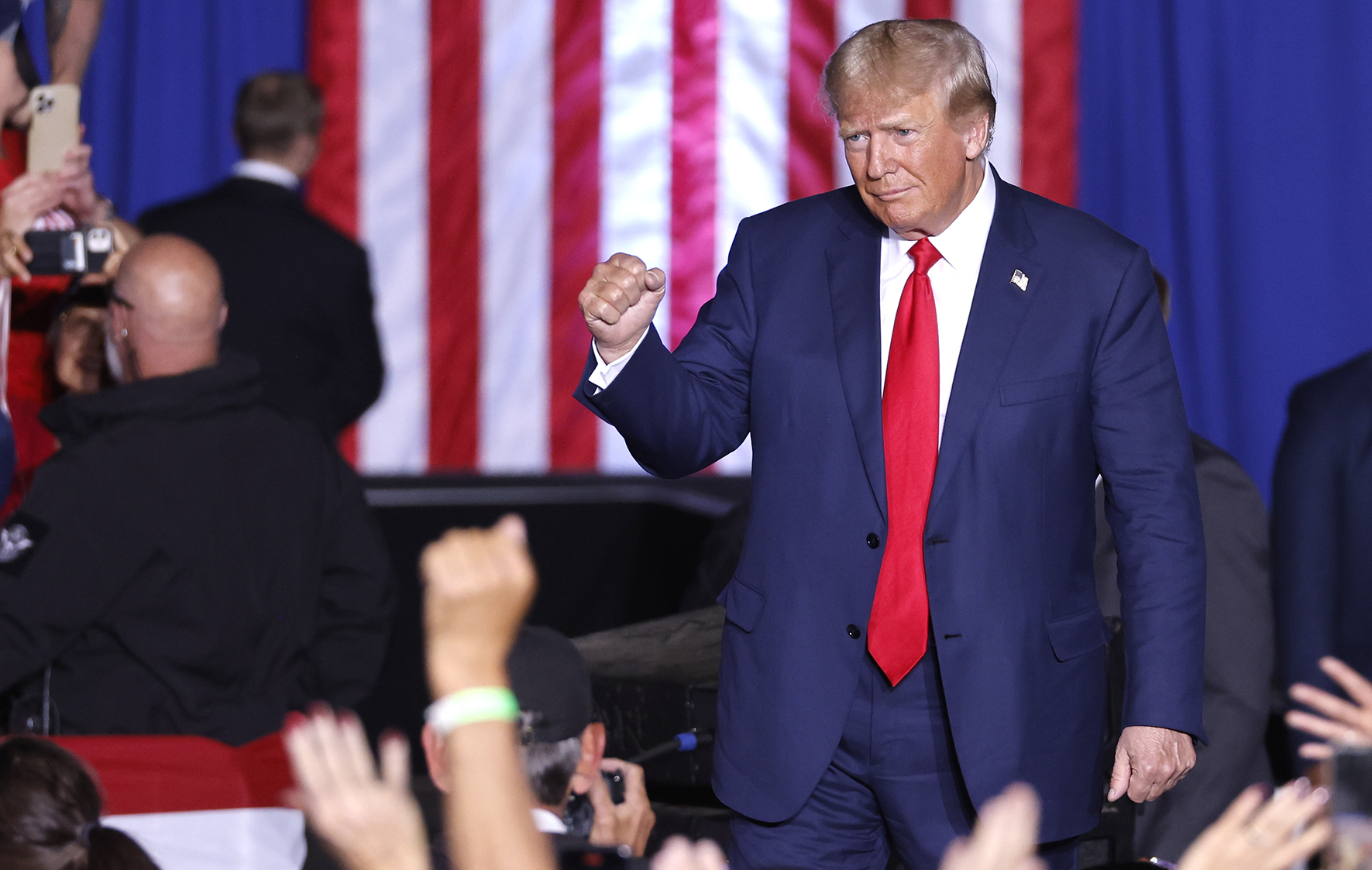
Former US President Donald Trump greets supporters at the start of the Save America rally at the Minden-Tahoe Airport in Minden, Nevada, US, on 8 October 2022. (Photo: EPA-EFE / Peter Dasilva)
Finally, of course, the hulking presence of Donald Trump continues to loom over the election. If his hand-picked candidates do well in congressional races and at the state levels, and especially if Republicans control one or both houses of Congress, the pressures on the Biden administration will go up the scale exponentially.
Expect a raft of punitive congressional investigations on everything from the minutiae of administrative decisions, military procurement and the misadventures in Afghanistan, to the continuing reality of the country’s immigration challenges.
Most especially, there will almost certainly be efforts to somehow concoct a vast conspiratorial web out of Biden’s son Hunter’s business and personal misfortunes that supposedly drew the president into some kind of evil, treasonous web. Oh, and the country would kiss the House Select Committee on the events of January 6 2021 goodbye, although the former president would still have to face a full suite of other investigations not under the control of Congress.
Just to show that the unexpected can still have impacts even at this late date in the campaign, there may yet be a considerable impact from the break-in at the Speaker of the House, Nancy Pelosi’s home in San Francisco and the appalling responses to the event by most Republicans. They simply cannot figure out how to denounce this kind of ugly domestic terrorism or even tone down their rhetoric which has had so much to do with encouraging this kind of violence over the past years.

Republican Virginia Governor Glenn Youngkin campaigns for Republican Georgia Governor Brian Kemp (not pictured) in Alpharetta, Georgia, US, 27 September 2022. Kemp is running against Democrat Stacey Abrams. (Photo: EPA-EFE / Erik S Lesser)
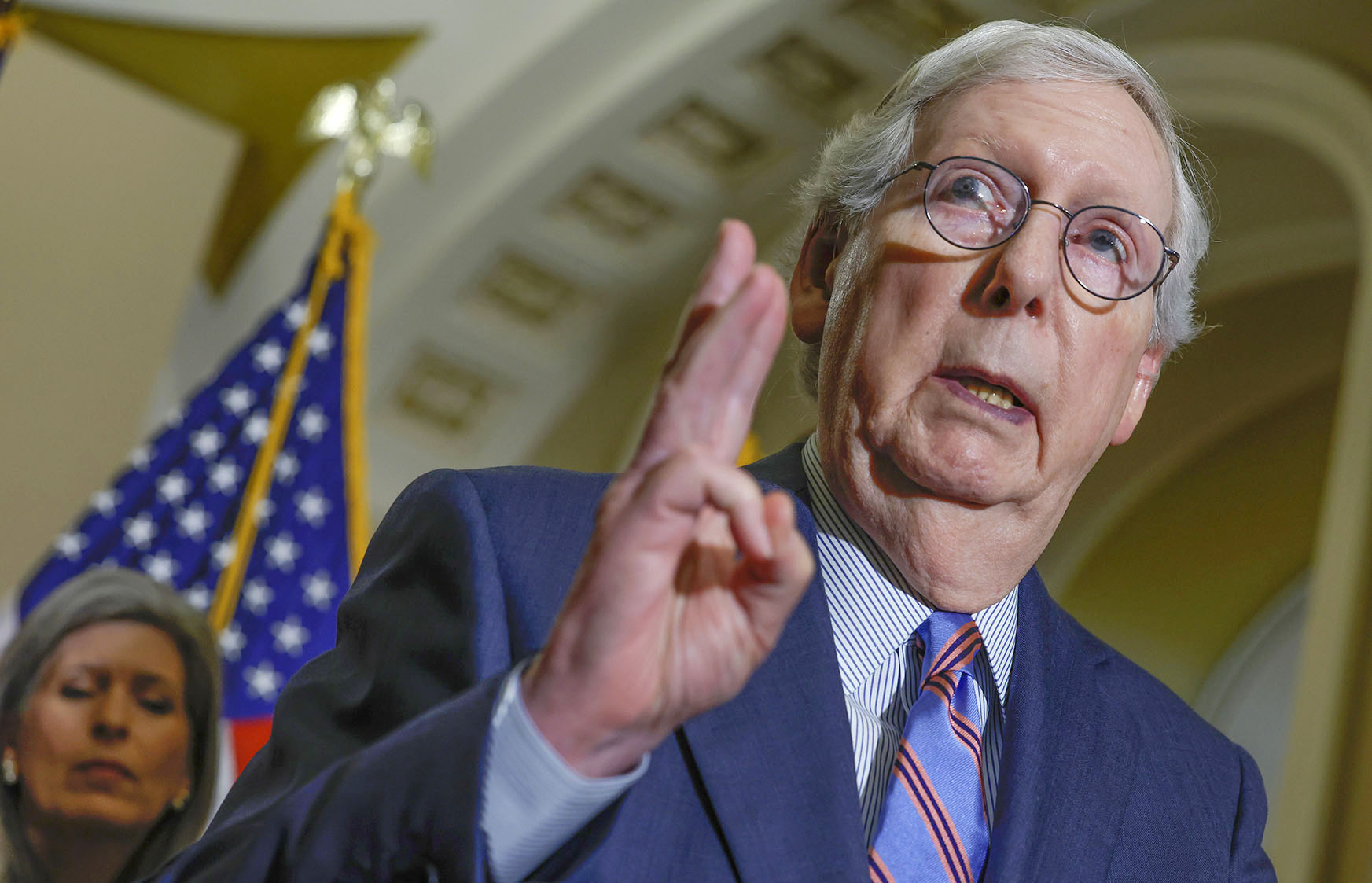
US Senate Minority Leader Mitch McConnell . (Photo: Anna Moneymaker / Getty Images)
Or, when they do denounce it, most of them twist their statements into unctuous words of solicitude and some kind of smarmy expression, just as Virginia Governor Glenn Youngkin did when he managed to say sorry about Pelosi’s husband’s injuries, but that, anyway, she needs to leave Washington by the hands of voters. To be fair, however, Senate Minority Leader Mitch McConnell did condemn the attack outright.
Our best guess about how it will come out? The Democrats will hold the Senate by one seat but they will lose the House by somewhere in the region of 10 or more seats and many of their new members will be 2020 election deniers and staunch Trump men and women.
And the pundits, no doubt, will lay much of the blame for this on the price of petrol. DM



















 Become an Insider
Become an Insider
Much will depend on which way people that are more aligned to the center will vote. While the left has done its very best to push these voters away with their incessant politics of division, the right has alienated many with the truly terrible Roe vs Wade overturning and of course the completely madness of Trump and the failed insurrection. We can only hope enough people vote democrats in spite of their now crazy levels of identity politics. The fault of the current polarization can clearly be found on both sides. From the right I expected this behavior, but not from the left.